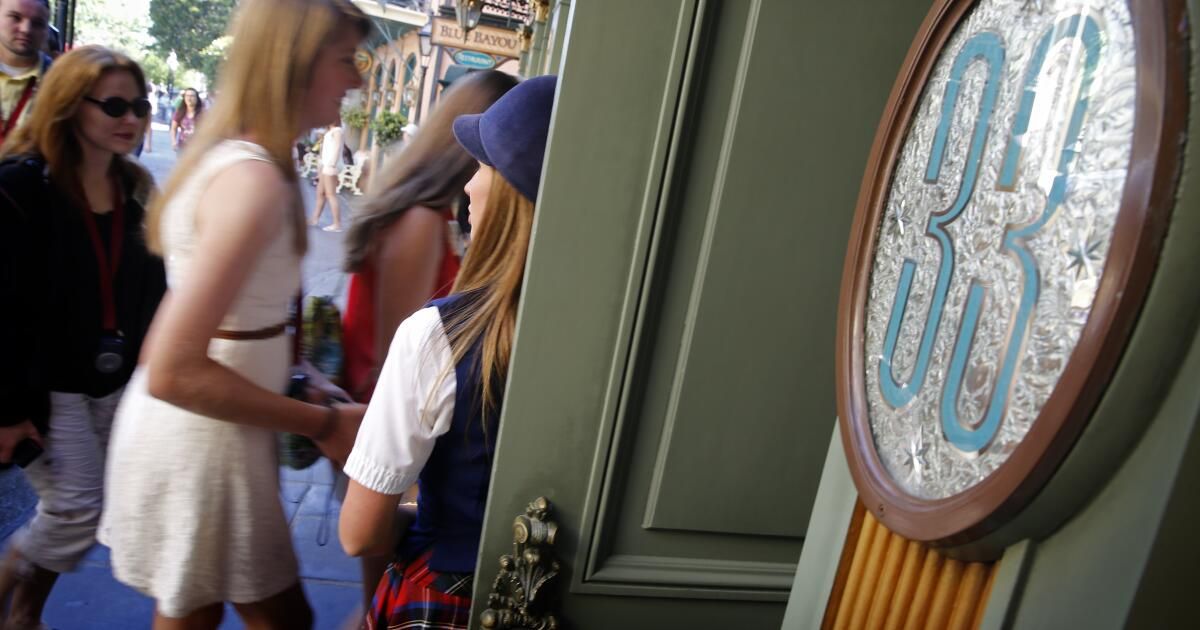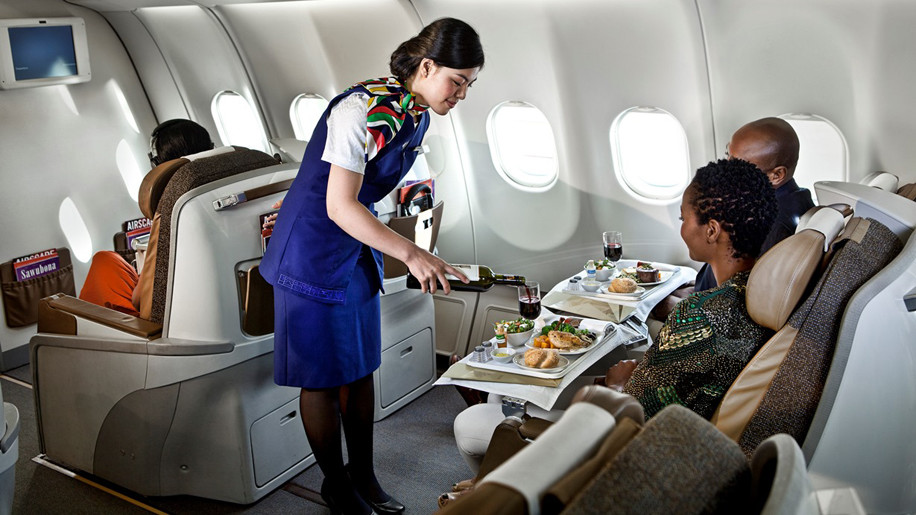As members of Disney's exclusive Club 33, Scott and Diana Anderson visited the two Anaheim theme parks between 60 and 80 times a year.
The private club, with its wood-paneled trophy room and other amenities, was the center of their social life. They brought friends, acquaintances and business associates. As a couple, they rode the Haunted House attraction nearly 1,000 times.
The club's annual dues were $31,500, and with travel and hotel expenses, the Arizona couple spent about $125,000 a year to get their Disney fix.
It all ended in 2017, when Disney revoked her membership in the club after an allegation that Scott Anderson was drunk in public. Diana Anderson, a die-hard Disney fan since childhood, called it “a stab in the heart.”
The Andersons, both 60, have spent the years since then — and hundreds of thousands of dollars — trying to get back into Club 33. On Tuesday, an Orange County jury rejected their claim that Disney wrongfully evicted them.
It took the Andersons more than a decade to earn Club 33 membership, which includes access to exclusive lounges, restaurants, VIP tours and special events.
They finally got off the waiting list in 2012.
Scott and Diana Anderson in front of Club 33 in June 2017.
(Courtesy of the Anderson family)
“They eventually became part of this special place,” their attorney, Sean Macias, told jurors at the civil trial. “That was their place. That was their happy place, their home.”
At about 9:50 p.m. on Sept. 3, 2017, security guards found Scott Anderson near the entrance to California Adventure showing signs of what they took to be intoxication, including slurred speech and difficulty standing, according to trial testimony.
“His breath smelled strongly of alcohol,” one of the guards told the court.
The club quickly expelled them.
Macias said Scott Anderson had between two and a half and three drinks and that Disney conducted an incomplete and sloppy investigation, with no breathalyzer or blood tests and no video of Anderson's behavior that night.
“They have not established that Mr. Anderson was intoxicated,” Macias said. Instead, he argued, Anderson’s symptoms were the result of a vestibular migraine, which can be triggered by red wine, one of the drinks Anderson consumed that day.
In effect, Macias argued, Disney was punishing Anderson for a medical condition.
A medical expert testified for the Andersons that the symptoms of a vestibular migraine could be mistaken for intoxication, and a neurologist hired by Disney responded that Anderson's behavior was likely a result of drinking.
The September 2017 incident was not the first time the Andersons had run afoul of Club 33 management. The year before, Diana had been briefly suspended for “using some foul language… a couple of F-words,” as Macias put it.
Macias told jurors that the Andersons filed suit against Disney to vindicate their reputation. “He doesn’t want to be known as a drunk,” Macias said. “They love that place. They took the fight to Disney because it’s their name.”
In their complaint, the Andersons asked to be reinstated into Club 33, with a refund of $10,500 for four months of unused membership in 2017. They also wanted $231,000, the equivalent of seven years at the club.
Jonathan E. Phillips, an attorney representing Disney, said Club 33's membership guidelines prohibit public intoxication.
“They didn’t want to pay the consequences for not following the rules,” Phillips told jurors, adding that Scott Anderson’s conduct “cost his wife of 40 years her lifelong dream of access to Club 33.”
The security guards, who no longer work for Disney, were more credible than the Andersons, Phillips said: “What possible reason did the security guards have for lying to him?”
In their original complaint, the Andersons alleged that Club 33 had targeted them in retaliation because they had complained that a club member had harassed other members and staff. But Superior Court Judge Deborah Servino restricted that line of evidence, which the Andersons considered the death knell for their case.
“My wife and I are convinced that this is an absolute mistake and we will fight to the death,” Scott Anderson, a golf course owner in Gilbert, Arizona, told The Times. “We are not going to let this go unnoticed.”
He said the lawsuit has cost him about $400,000.
“My retirement has been delayed by five years,” he said. “I am paying a fortune. Every day I see a new bill and I am about to collapse.” He said he will appeal.
His wife said she wants to keep fighting.
“I'll sell a kidney,” Diana said. “I don't care.”











